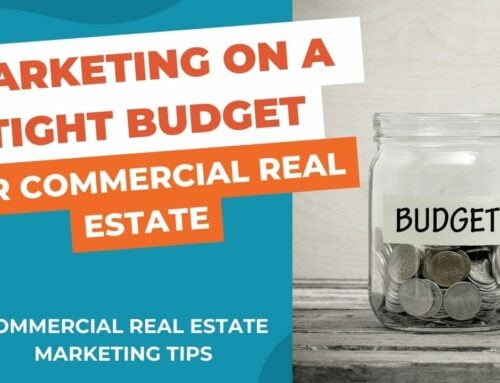The commercial real estate industry has experienced a digital revolution, the likes of which it has never experienced before, and that has had a knock-on effect, as the tech disruption has benefited commercial real estate marketing. Nowadays, business and industry professionals demand speed and immediacy when hunting for new properties to expand their operations.
No longer are limited marketing strategies like mere flyers and brochures, LoopNet listings, or stale and non-interactive website presentations enough to successfully market commercial properties for sale or lease. In the modern-day tech-savvy environment, real estate professionals should be able to expand their marketing strategies to include digital marketing campaigns, online commercial real estate listings, paid social media ads, and institutional quality branded websites for individual properties.
To help you out, we have outlined some of the key factors that go into creating a commercial real estate marketing strategy, and how you can implement them. So, here is how you should go about it.
1. Define Your Objectives and Target Audience
How you market your commercial property depends mainly on your target audience. So, you should start by defining your main objectives and target audience with questions like:
- Where does your audience spend its time online?
- What methods will you use to reach them?
- What assets do you need to create?
- What is your budget?
You can get some ideas from your competitors, so conduct a short study on what they’re doing for marketing themselves and their properties and think about how you can stand out.
2. Develop a Commercial Real Estate Marketing Plan
A marketing plan is going to provide you with a complete overview of your overall mission, target audience, unique selling point, strategy, and metrics you’ll measure success on. When you’re creating your marketing plan, make sure you include the following in it:
- Business summary
- Target market and audience
- Budget
- Marketing channels
- Marketing material
- Metrics
A healthy commercial real estate marketing strategy should have a well-balanced marketing mix and leverage earned, paid, and owned media.
3. Consider the Tools and Software You Need
You need to ensure that you have the right tools in place to execute an effective marketing strategy. The list of real estate marketing tools you will use cover a variety of different uses and requirements, including contact management, email marketing, listing presentations, and more.
It’s important to give the technology selection process the attention that it deserves so that you don’t need to keep changing platforms. The switching cost from one platform to another can not only decrease productivity but also hinder your ability to operate at 100% as you manage this transition.
4. Upgrade Your Company Website
Your company website will be the first impression that you will give potential clients, and it will be a key factor for instilling trust and confidence among prospects. It can also serve as an important marketing outlet, allowing you to feature company news, demonstrate leadership through research studies and blog posts, and promote your properties with a commercial property search engine.






